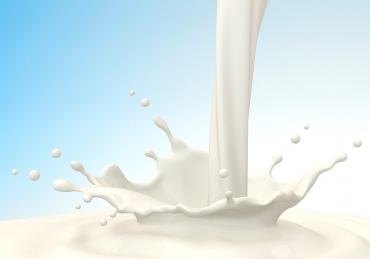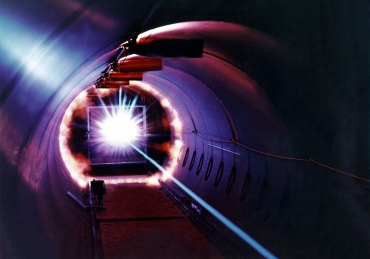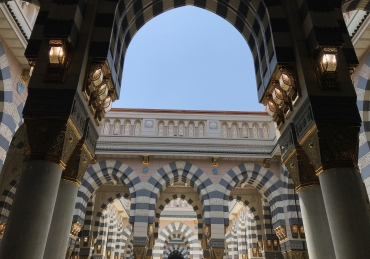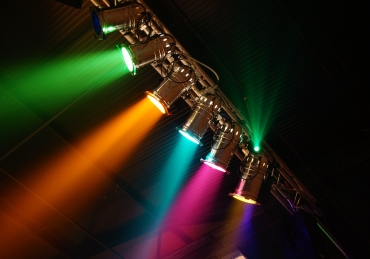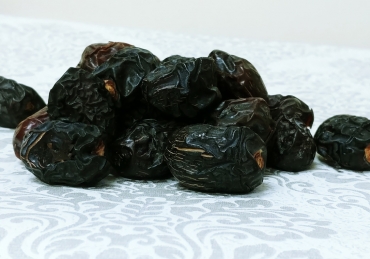Ifṭār Duʿāʾ Timing
Question
We have read on your website on the following link http://islamicportal.co.uk/masnoon-iftar-duas/ that the specific Ifṭār duʿās should be read after breaking the fast. Please can you provide the evidence for this.
بسم الله الرحمن الرحیم
Answer
The evidence of this is outlined in the Arabic references within the document you refer to. A summary is outlined below in English.
The scholars have explicitly mentioned that the duʿās should be read after Ifṭār. For example, in the commentary of the following duʿāʾ ذَهَبَ الظَّمَأُ وابْتَلَّتِ الْعُرُوْقُ وَثَبَتَ الأجْرُ إِنْ شاءَ اللهُ (The thirst has gone, the veins are moistened, and the reward is established, if Allah wills), the Ḥanafī scholars ʿAllāmah Muẓhirī (d. 727/1326-7), Mullā ʿAlī al-Qārī (d. 1014/1605) and Shaykh Khalīl Aḥmad Sahāranpūrī (d. 1346/1927) explicitly affirm that the duʿāʾ should be read after Ifṭār. This is also the view of scholars from different schools of thought including Shaykh Sharaf al-Ḥaq ʿAẓīmābādī (d. 1329/1911), Shaykh Maḥmūd Khattāb al-Subkī (d. 1352/1933), ʿAllāmah Ibn Ḥajar al-Makkī (d. 974/1567), ʿAllāmah Ramlī (d. 1004/1596), Khaṭīb Shirbīnī (d. 977/1570), ʿAllāmah Ibn ʿAllān (d. 1057/1647) and ʿAllāmah Dasūqī (d. 1230/1815).
Similarly, in the commentary of the following duʿāʾ اَللَّهُمَّ لَكَ صُمْتُ وَعَلَى رِزْقِكَ أفْطَرْتُ (O Allah, I fasted for You, and with Your sustenance I completed my fast), scholars from different schools of thought have explicitly mentioned that the duʿāʾ should be read after Ifṭār. They include: ʿAllāmah Muẓhirī (d. 727/1326-7), ʿAllāmah Ibn al-Malak al-Ḥanafī (d.p. 854/1450), Mullā ʿAlī al-Qārī (d. 1014/1605), ʿAllāmah Ibn Ḥajar al-Makkī (d. 974/1567), ʿAllāmah Ramlī (d. 1004/1596), Khaṭīb Shirbīnī (d. 977/1570), ʿAllāmah Ibn ʿAllān (d. 1057/1647),ʿAllāmah Malyabārī (d. 1028/1618-9), Sayyid al-Bakrī al-Dimyāṭī (d. 1310/1893), ʿAllāmah Dasūqī (d. 1230/1815) and Shaykh Maḥmūd Khaṭṭāb al-Subkī (d. 1352/1933). This is supported by the wording of the narration in some sources which mentions the following:
كان رسول الله صلى الله عليه وسلم إذا صام ثم أفطر قال: اللهم لك صمت، وعلى رزقك أفطرت، هذا لفظ عبد الله بن المبارك في الزهد (١٤١١) وابن أبي شيبة (٩٧٤٤) ومحمد بن فضيل الضبي في الدعاء (٦٦)۔
When the messenger of Allah ﷺ would fast and then do Ifṭār, he would say: اَللَّهُمَّ لَكَ صُمْتُ وَعَلَى رِزْقِكَ أفْطَرْتُ.
In fact, the ḥadīth scholar Imam Abū Muḥammad al-Ḥārith ibn Muḥammad ibn Abū Usāmah (d. 282/896) transmits a long narration in his Musnad which is more explicit in this regard:
يا علي إذا كنت صائما في شهر رمضان فقل بعد إفطارك
O ʿAlī, when you are fasting in the month of Ramaḍān, then say after your Ifṭār.
The duʿāʾ in this narration is similar to this duʿāʾ with an addition, as outlined in the document.
Thus, it is clear that the duʿās should be read after Ifṭār, and this is also apparent from the words of the duʿās. The thirst being quenched and the veins becoming moist only occurs after Ifṭār. We have not come across any scholar who has mentioned that this duʿāʾذَهَبَ الظَّمَأُ وابْتَلَّتِ الْعُرُوْقُ وَثَبَتَ الأجْرُ إِنْ شاءَ اللهُ which is the most authentic Ifṭār duʿāʾ should be read before Ifṭār.
Some Urdu books suggest in relation to the second duʿāʾ اَللَّهُمَّ لَكَ صُمْتُ وَعَلَى رِزْقِكَ أفْطَرْتُ that it should be read before Ifṭār. It appears that the authors were unaware of the aforementioned narrations and the position of the commentators and earlier scholars in relation to these supplications. In addition, in relation to the Ifṭār specific supplications, we have not come across a distinction between pre-Ifṭār and post-Ifṭār. We have not come across any evidence that the supplicationذَهَبَ الظَّمَأُ وابْتَلَّتِ الْعُرُوْقُ وَثَبَتَ الأجْرُ إِنْ شاءَ اللهُ should be read after Ifṭār and the supplication اَللَّهُمَّ لَكَ صُمْتُ وَعَلَى رِزْقِكَ أفْطَرْتُ should be read before Ifṭār.
This should not be confused with the narrations wherein the Prophet ﷺ has guaranteed that the supplication of a fasting person is accepted. This is a separate narration and it is for this reason the scholars have emphasised the importance and benefits of making as much duʿāʾ as possible during the fast, although some scholars suggest it relates to after sunset or after Ifṭār. As there are both views in this regard, we have mentioned that the following duʿāʾ of ʿAbd Allaḥ ibn ʿAmr (may Allah be pleased with them) can be read before or after Ifṭār as it is not specific to Ifṭār and it has been transmitted alongside the narration that the supplication of a fasting person at the time of Ifṭār is accepted:
اَللَّهُمَّ إِنِّيْ أسْألُكَ بِرَحْمَتِكَ الَّتِيْ وَسِعَتْ كُلَّ شَيْءٍ أنْ تَغْفِرَ لِيْ
O Allah, I ask You by Your mercy which envelopes all things, that You forgive me.
Finally, there are two points worth noting:
First, it is common practice that people complete their fasts with dates and water and thereafter perform Maghrib Ṣalāh and thereafter eat food. One does not need to wait to eat food to supplicate with these duʿās. Rather one should read these duʿās after eating dates and drinking water as this is Ifṭār, and it is as this point that the veins are moistened and the thirst is quenched. The ḥanafī ḥadīth commentator ʿAllāmah Muẓhirī (d. 727/1326-7) writes:
هذا الدعاء يقرأ بعد الإفطار بالماء
This supplication should be read after Ifṭār with water (Mafātīḥ, 3:23)
Second, our purpose is to highlight what is preferred in light of the Sunnah and scholarly discourse. However, if someone decides to read the supplications before Ifṭār or at any other point, this is not prohibited, as there are no time restrictions on supplications, as long as one does not regard the specific timing as Sunnah.
Allah knows best
Yusuf Shabbir
16 Dhū al-Qaʿdah 1437 / 19 August 2016


